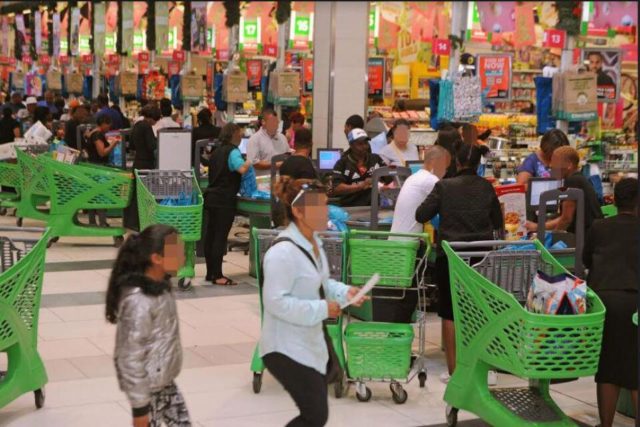Struggling SA consumers might have to fork out even more
BUCKLING under the economic strain brought on by Covid-19, consumers who have been paying more for food will have to fork out even more for petrol, as well as a possible electricity hike.
A South African organisation monitoring prices of a basic food basket of 38 items showed that rice had increased by 26%, sugar beans by 18%, cooking oil by 11%, while vegetables such as cabbage and carrots increased by 22%.
The average cost of a household food basket had increased by R250.
The Competition Commission briefed a parliamentary committee on the 1 354 complaints it had received on price gouging since the beginning of lockdown. Panic buying and a weakened rand has been to blame for retailers hiking food prices.
This came out of discussions held during a webinar hosted by UWC’s Institute for Poverty, Land and Agrarian Studies under the theme “Democratising South Africa’s Food System in and Beyond the Crisis”.
While more South Africans will be able to return to work at the beginning of next month, the reality is many face retrenchments and salary cuts.
A price hike for electricity is also on the cards after the National Energy Regulator of SA approved Eskom’s application to recover R13.3billion for the 2018/19 financial year. Eskom will be able to recover this money through tariff increases.
The AA announced that petrol could go up by as much as 50 cents in June. Diesel and paraffin prices, however, are expected to decrease by 56c and 75c, respectively. Motorists had recorded two consecutive price decreases in March and April after global oil prices plummeted.
Experts say the rates of hunger from low-income households are of greater concern given the increase in staple food items.
Mervyn Abrahams from the Pietermaritzburg Economic Justice and Dignity Group said it had been monitoring the cost of a household food basket of 38 basic food items brought by women from low-income households, which amounted to an increase of around R249 in two months.
These increases were seen in essential staple foods such as rice, cake flour, cooking oil, white sugar, sugar beans, onions, eggs and cabbage.
He told the webinar “buying patterns have changed, instead of going from store to store looking for bargains, women have to take what is available at the one store at higher prices than they are used to spending”.
“We are not surprised by the deepening sense of hunger with food becoming more unaffordable with more people at home. Food that used to last three weeks now lasts for two, which is no surprise that we see many people queuing for food aid.”
The commission’s Tembinkosi Bonakele said food-related increases and the depreciation of the rand had resulted in price hikes for some imported crops such as wheat at 25% and rice at 30%, which fed the higher flour, bread and rice prices among suppliers and retailers.
Bonakele said while maize had increased due to the end of crop shortages, this would begin to change by the end of May when the new bumper crop comes in.
A demand on fresh produce was initially impacted by panic buying of staples such as onions, potatoes, tomatoes, which led to some price hikes.
Stephen Greenberg from the African Centre for Biodiversity said: “A market- based food system creates a situation where those who can afford to buy food can do so. We need a different understanding around food, it is not a commodity but a reality, and these food prices reveal stark inequities in the system.”








